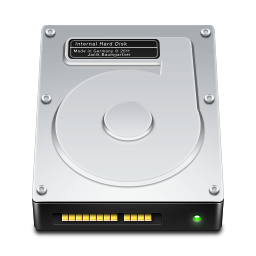Lost Data? Don’t Panic! We Can Help.
Birmingham data recovery services and Birmingham hard drive recovery from Data Recovery UK, the UK’s foremost data solutions provider for all your Birmingham data loss problems.
You can reach our data recovery team at the following numbers:
- Local contact number – 0121 401 1282
- Free from most landline – 0800 999 3282
- Low cost from mobiles – 0333 123 3282
- Emergency data recovery – 07932 824 264
Our team is comprised of industry leaders who have individually between 20 – 30 years in advanced data recovery who came together to build the UK’s premier data recovery service for:
- Home users
- Small businesses
- Large corporations
- Charitable Organization
Incorrect initial action can further damage your hard disk or drastically reduce the chances of a successful recovery. Don’t risk your valuable data and seek expert advice from a data recovery services provider at the first possible opportunity.

No Cost, No Obligation Quote!
Birmingham Recovery Services

We believe we offer not only the best value data recovery services in the Birmingham area but in the UK as well.
This does not mean we compromise on the quality of our service though and as a full service data recovery provider we use only the best data recovery technology available which means we are often able to recover data that local computer repair companies cannot due to our investment in the latest cutting edge data recovery technology.
We also use very robust recovery protocols to ensure the original data integrity is fully maintained and protected by using deep imaging techniques that can even bypass the hard drives own pcb and software and can even read bad sectors and degraded hard drives that otherwise would be unreadable using lesser technology.
We can also provide remote server backup and secure remote data backup facilities to Birmingham corporations as part of our business recovery planning and business continuity solutions.
Local Birmingham Areas Covered Include
- Acocks Green
- Aston
- Balsall Heath
- Bartley Green
- Billesley
- Birchfield
- Boldmere
- Bordesley
- Bordesley Green
- Bournbrook
- Bournville
- Browns Green
- Buckland End
- California
- Castle Vale
- Coleshill
- Cotteridge
- Deritend
- Digbeth
- Druids Heath
- Duddeston
- Edgbaston
- Erdington
- Five Ways
- Four Oaks
- Frankley
- Gannow Green
- Garretts Green
- Gosta Green
- Gravelly Hill
- Great Barr
- Hall Green
- Handsworth
- Handsworth Wood
- Harborne
- Hawkesley
- Hay Mills
- Highgate
- Highters Heath
- Hill Hook
- Hockley
- Hodge Hill
- Hollywood
- Jewellery Quarter
- Kents Moat
- King’s Heath
- Kings Norton
- Kingstanding
- Kitts Green
- Ladywood
- Lee Bank
- Lifford
- Longbridge
- Lozells
- Minworth
- Mere Green
- Moseley
- Nechells
- New Frankley
- New Oscott
- Northfield
- Old Oscott
- Perry Barr
- Perry Beeches
- Perry Common
- Queslett
- Quinton
- Rednal
- Ridgacre
- Rubery
- Sarehole
- Selly Oak
- Selly Park
- Shard End
- Sheldon
- Short Heath
- Small Heath
- Soho
- South Yardley
- South Woodgate
- Sparkbrook
- Sparkhill
- Stechford
- Stirchley
- Stockland Green
- Sutton Coldfield
- Tower Hill
- Turves Green
- Tyburn
- Tyseley
- Wake Green
- Walmley
- Ward End
- Warstock
- Washwood Heath
- Weoley Castle
- West Heath
- Whitehouse Common
- Witton
- Winson Green
- Woodgate
- Wylde Green
- Yardley
- Yardley Wood
- Castle Bromwich
- Smethwick
- Oldbury
- West Bromwich
- Dudley
- Netherton
- Solihull
Data loss emergency situations can be very stressful so give our recovery team on call on the number above for immediate support and help with your data loss problem.
recover your lost data.
What Others Say About Us
FAQ
We’ve all done it – deleted files when we didn’t mean to. Whether it’s accidentally dropping them in the Recycle Bin, hitting Delete instead of Save or deleting something in DOS without thinking things through first, we’ve experienced that jaw-dropping realisation that we’ve lost work. And you may have experienced even more horror at a hard-drive crash.
However, it’s very rare that those files are completely deleted for good. Even when something really catastrophic does happen – that is, your hard drive seizes – there are professionals that can work digital miracles on your equipment to resurrect the data.
Data recovery is the process of salvaging data from damaged, failed, corrupted, or inaccessible secondary storage media when it cannot be accessed normally. Often the data are being salvaged from storage media such as internal or external hard disk drives, solid-state drives (SSD), USB flash drive, storage tapes, CDs, DVDs, RAID, and other electronics. Recovery may be required due to physical damage to the storage device or logical damage to the file system that prevents it from being mounted by the host operating system.
The most common “data recovery” scenario involves an operating system (OS) failure (typically on a single-disk, single-partition, single-OS system), in which case the goal is simply to copy all wanted files to another disk. This can be easily accomplished using a Live CD, many of which provide a means to mount the system drive and backup disks or removable media, and to move the files from the system disk to the backup media with a file manager or optical disc authoring software. Such cases can often be mitigated by disk partitioning and consistently storing valuable data files (or copies of them) on a different partition from the replaceable OS system files.
A hard disk drive (HDD) is a data storage device used for storing and retrieving digital information using rapidly rotating discs (platters) coated with magnetic material. An HDD retains its data even when powered off. Data is read in a random-access manner, meaning individual blocks of data can be stored or retrieved in any order rather than sequentially. An HDD consists of one or more rigid (“hard”) rapidly rotating discs (platters) with magnetic heads arranged on a moving actuator arm to read and write data to the surfaces.
Introduced by IBM in 1956, HDDs became the dominant secondary storage device for general purpose computers by the early 1960s. Continuously improved, HDDs have maintained this position into the modern era of servers and personal computers. More than 200 companies have produced HDD units, though most current units are manufactured by Seagate, Toshiba and Western Digital. Worldwide revenues for HDDs shipments are expected to reach $33 billion in 2013, a decrease of about 12% from $37.8 billion in 2012.
The primary characteristics of an HDD are its capacity and performance. Capacity is specified in unit prefixes corresponding to powers of 1000: a 1-terabyte (TB) drive has a capacity of 1,000 gigabytes (GB; where 1 gigabyte = 1 billion bytes). Typically, some of an HDD’s capacity is unavailable to the user because it is used by the file system and the computer operating system, and possibly inbuilt redundancy for error correction and recovery. Performance is specified by the time to move the heads to a file (Average Access Time) plus the time it takes for the file to move under its head (average latency, a function of the physical rotational speed in revolutions per minute) and the speed at which the file is transmitted (data rate).
The two most common form factors for modern HDDs are 3.5-inch in desktop computers and 2.5-inch in laptops. HDDs are connected to systems by standard interface cables such as SATA (Serial ATA), USB or SAS (Serial attached SCSI) cables.
Hard disk failures are so common that data recovery is a multi-billion dollar industry. If you need to recover deleted photos, have a hard drive repair, or retrieve data for a business, a data recovery service can help to deal with the panic of losing files and information. Learn how to find a data recovery service and retrieve lost information for peace of mind. Have a question? Get an answer from Our Data Recovery Experts now!
Source: http://www.ehow.com/how_6377363_data-recovery-service.html
View Larger Map
Birmingham is a city and metropolitan borough in the West Midlands of England. It is the most populous British city outside the capital London with 1,074,300 residents (2011 census), an increase of 96,000 over the previous decade. The city lies within the West Midlands conurbation, the third most populous urban area in the United Kingdom with a population of 2,440,986 (2011 census). Its metropolitan area is the United Kingdom’s second most populous with 3,683,000 residents.
A medium-sized market town during the medieval period, Birmingham grew to international prominence in the 18th century at the heart of the Midlands Enlightenment and subsequent Industrial Revolution, which saw the town at the forefront of worldwide developments in science, technology and economic organisation, producing a series of innovations that laid many of the foundations of modern industrial society. By 1791 it was being hailed as “the first manufacturing town in the world”. Birmingham’s distinctive economic profile, with thousands of small workshops practising a wide variety of specialised and highly-skilled trades, encouraged exceptional levels of creativity and innovation and provided a diverse and resilient economic base for industrial prosperity that was to last into the final quarter of the 20th century. Its resulting high level of social mobility also fostered a culture of broad-based political radicalism, that under leaders from Thomas Attwood to Joseph Chamberlain was to give it a political influence unparalleled in Britain outside London and a pivotal role in the development of British democracy.